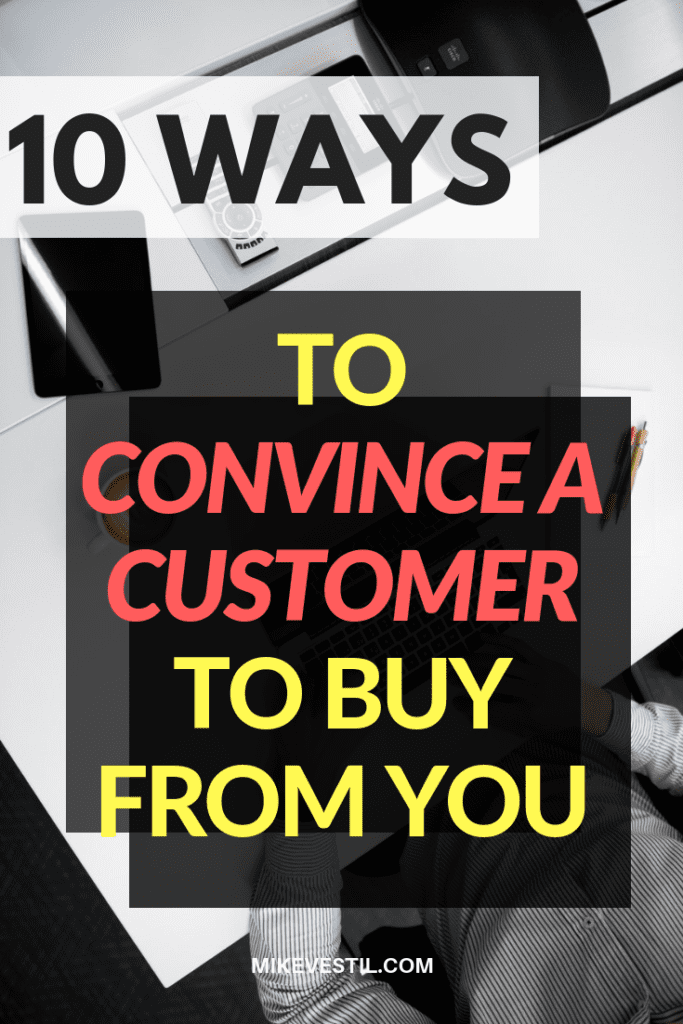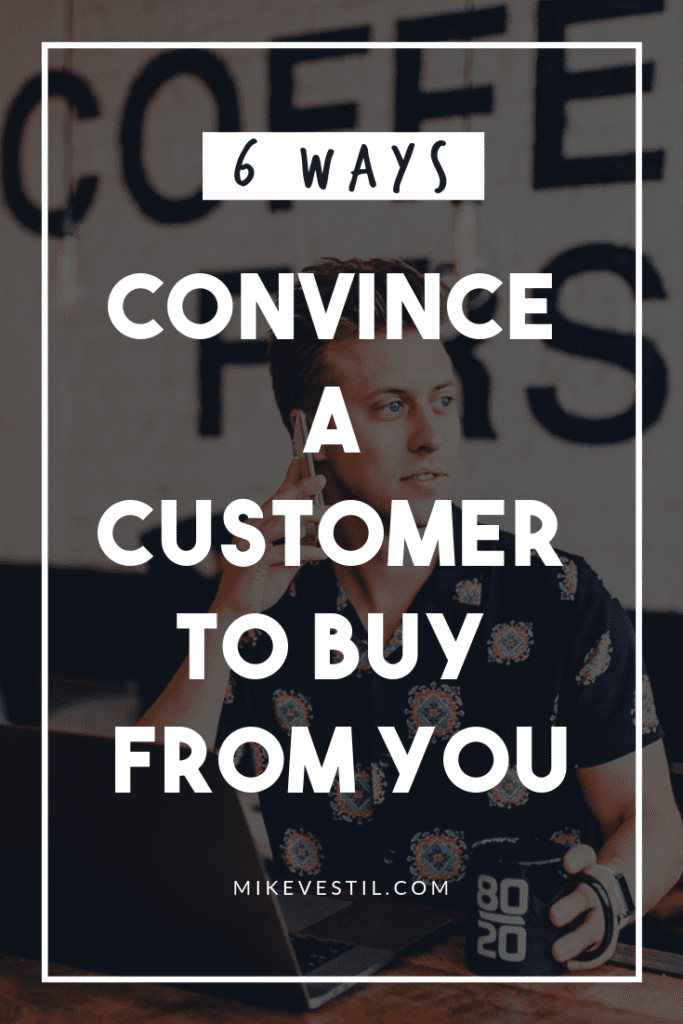How To Convince Someone To Buy Something

The art of persuasion in sales, often perceived as manipulative, is undergoing a significant transformation. Consumers, armed with unprecedented access to information, are no longer swayed by outdated tactics. Instead, building trust, understanding needs, and offering genuine value are emerging as the cornerstones of effective sales strategies.
This article delves into the science-backed methods of influencing purchasing decisions in an ethical and sustainable manner. We'll explore psychological principles, data-driven approaches, and the evolving role of technology in shaping consumer behavior. Forget the high-pressure sales tactics of the past; the future of sales lies in creating mutually beneficial relationships.
Understanding Customer Needs: The Foundation of Persuasion
The most crucial aspect of persuading someone to buy is understanding their needs. This goes beyond superficial inquiries; it requires active listening and insightful questioning. According to a study by HubSpot Research, 69% of buyers want salespeople to listen to their needs, highlighting the importance of empathy in the sales process.
By understanding the prospect's pain points, a salesperson can tailor their presentation to address those specific concerns. This approach shifts the focus from simply pushing a product to providing a solution. It also fosters a sense of trust and collaboration, essential for long-term customer relationships.
Leveraging Psychological Principles: Science in Sales
Psychology plays a pivotal role in understanding how people make decisions. Reciprocity, the principle of returning a favor, can be effectively used by offering something of value upfront, such as a free consultation or a helpful resource. This creates a sense of obligation and increases the likelihood of a purchase.
Scarcity, another powerful principle, suggests that people place a higher value on things that are rare or limited. Highlighting the limited availability of a product or service can create a sense of urgency and drive sales. The bandwagon effect is also powerful. If potential buyers see others purchasing the product, they will be more inclined to think that it is the right product for them.
The principle of authority can be used effectively by showcasing expertise and building credibility. Sharing testimonials, case studies, and certifications can establish the salesperson as a trusted authority in their field. This instills confidence in the buyer and increases their willingness to make a purchase.
Data-Driven Sales Strategies: Optimizing for Success
Data analytics is revolutionizing the sales landscape, providing insights into customer behavior and preferences. CRM systems, like those offered by Salesforce, enable businesses to track customer interactions and identify patterns.
By analyzing data, salespeople can personalize their approach and target the most receptive prospects. Predictive analytics can also be used to identify potential leads and forecast sales trends. This data-driven approach allows for more efficient and effective sales strategies.
The Role of Social Proof
Testimonials, reviews, and case studies provide powerful social proof. These demonstrate that other customers have found value in the product or service. Nielsen reports that 92% of consumers trust recommendations from friends and family more than advertising, underscoring the impact of social proof.
Displaying positive reviews prominently on websites and in marketing materials can significantly influence purchasing decisions. Sharing case studies that demonstrate how the product or service has helped other customers achieve their goals can be especially persuasive.
Ethical Considerations: Building Long-Term Trust
While persuasion is essential in sales, it's crucial to maintain ethical standards. Manipulative tactics and false promises can damage a company's reputation and erode customer trust. Transparency and honesty are paramount for building long-term relationships.
The American Marketing Association emphasizes the importance of ethical marketing practices, including honesty, responsibility, and fairness. Prioritizing the customer's needs and providing accurate information is essential for fostering trust and building a loyal customer base.
The Future of Sales: Personalized and Value-Driven
The future of sales is increasingly personalized and value-driven. As technology continues to evolve, salespeople will have access to even more data and tools to understand customer needs and tailor their approach. Artificial intelligence (AI) is expected to play a growing role in lead generation and customer engagement.
The focus will shift from simply selling products to providing solutions and building long-term relationships. Salespeople will need to be adept at building trust, demonstrating empathy, and providing exceptional customer service. The key to success in the future of sales lies in creating mutually beneficial partnerships that deliver genuine value to the customer.

















+something%2C+or+to+buy+an+item+or+service.jpg)
